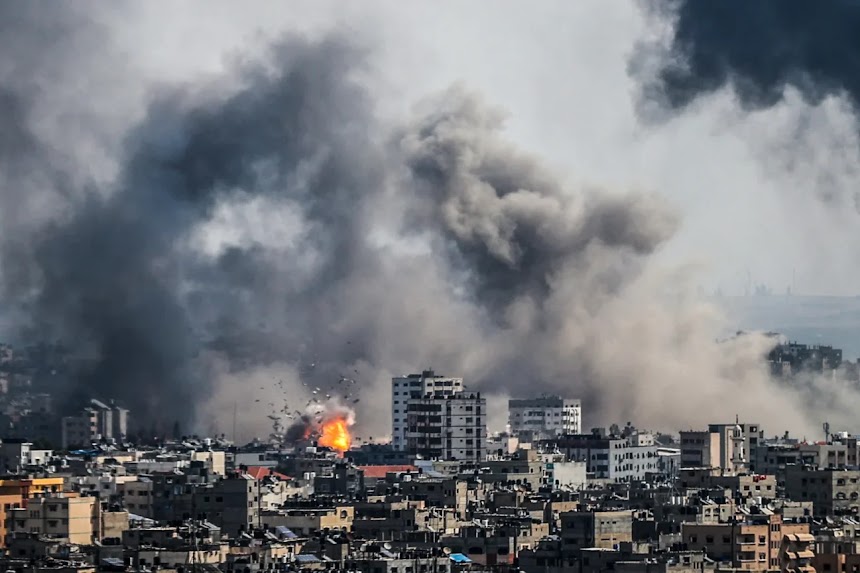The ongoing conflict between Israel and Hamas-run Gaza escalated on Sunday, with Israeli forces launching strikes and engaging in battles with militants across several areas of the territory. The health ministry in Gaza reported that the death toll from the war has now exceeded 35,000 people.
The conflict, which has been ongoing for over seven months, prompted UN Chief Antonio Guterres to call for "an immediate humanitarian ceasefire, the unconditional release of all hostages and an immediate surge in humanitarian aid" into the besieged Gaza Strip. Speaking at a donor conference in Kuwait, Guterres emphasised that a ceasefire would only be the start of the process.
Despite mediation efforts by Egypt, Qatar, and the United States, a truce appears elusive. US President Joe Biden stated on Saturday that a ceasefire could be achieved "tomorrow" if Hamas released the hostages held in Gaza since the October 7 attack that sparked the conflict. However, Hamas labelled Biden's statement a "setback" to the negotiations and accused Israeli Prime Minister Benjamin Netanyahu of undermining the talks by launching the Rafah offensive.
US Secretary of State Antony Blinken warned on Sunday that an all-out Israeli offensive on Rafah would provoke "anarchy" without eliminating Hamas. He also agreed with a statement by Netanyahu that Israeli forces had killed more civilians than Hamas militants.
Over the past day, Israel said its jets had hit "over 150 terror targets". The health ministry in Gaza reported that at least 63 people were killed over the previous 24 hours, bringing the overall death toll from Israel’s bombardment and offensive in Gaza to at least 35,034 people, mostly women and children.
The war began with an unprecedented attack by Hamas on Israel on October 7, which resulted in the deaths of more than 1,170 people, mostly civilians. The militants also seized hostages, scores of whom were freed during a week-long truce in November. Israel estimates that 128 captives remain in Gaza, including 36 who the military says are dead.
Months after Israel said it had dismantled Hamas’s command structure in northern Gaza, fighting has resumed in Jabalia refugee camp and Gaza City’s Zeitoun neighbourhood. Military spokesman Rear Admiral Daniel Hagari said that "in recent weeks we have identified attempts by Hamas to rebuild its military capabilities in Jabalia, and we are acting to destroy these attempts".
Israel defied international opposition this week and sent tanks and soldiers into eastern Rafah, effectively shutting a key aid crossing. On Saturday, the Israeli military expanded an evacuation order for eastern Rafah and said 300,000 Palestinians had left the area.
Philippe Lazzarini, head of the UN agency for Palestinian refugees, UNRWA, said in a post on X Sunday that Israel’s evacuation orders were "forcing people in Rafah to flee anywhere and everywhere". He added, "No place is safe in Gaza."
UN human rights chief Volker Turk warned Sunday that the evacuation orders, "much less a full assault", could not be "reconciled with the binding requirements of international law" or two recent International Court of Justice rulings on Israel’s conduct of the war.
In a sign of surging regional tensions, Egypt on Sunday said it would formally support a case brought by South Africa at the ICJ, accusing Israel of committing genocidal acts in the war.
Meanwhile, inside Israel, sirens sounded at 8:00 pm local time (1700 GMT) to mark the start of Memorial Day, in honour of the country’s fallen soldiers and civilian victims of attacks. "Tonight, we have no peace, and there is no silence," President Isaac Herzog said at a ceremony at Jerusalem’s Western Wall, the holiest site where Jews can pray. At the same ceremony, Israeli army chief Herzi Halevi said he was "fully responsible" for what happened on October 7.



